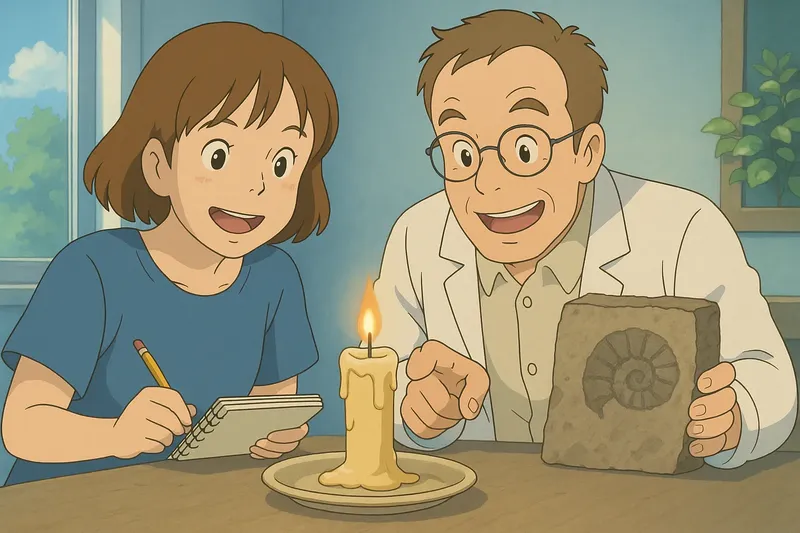Radiometric Dating
What is Radiometric Dating? Explained in an easy to understand way:

What's Covered in the Video:
Imagine trying to figure out how long a candle has been burning by looking at how much wax is left compared to how much wax was there initially. This is similar to how scientists determine the age of rocks by comparing the amount of radioactive isotopes, which decay over time, to nonradioactive isotopes, which remain stable. Just as the remaining wax indicates how much of the candle has burned, the ratio of isotopes reveals how much time has passed since the rock was formed, as radioactive isotopes decay at a known rate.

Practice Version

Radiometric Dating: Comparing the amount of radioactive and nonradioactive isotopes to determine rock age. Radiometric dating. It's a scientific method used to date materials like rocks by measuring the decay of radioactive isotopes within them.